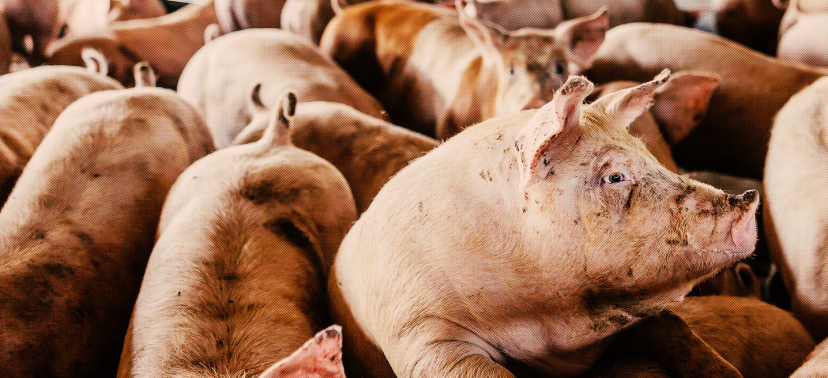ClimateNews & Opinion
by Mia DiFelice
When that Norfolk Southern train first derailed in East Palestine, vinyl chloride was one of the top concerns. In the days after, officials on the ground burned more than 100,000 gallons of it from five of the derailed train cars.
Now, more than a month later, officials have found distressing levels of dioxins, toxic byproducts of burning vinyl chloride, in the soil around East Palestine.
Vinyl chloride and dioxins may have come under the spotlight most recently in February, but they’ve been harming communities for decades. And if our current plastics boom continues unabated, their threat to us will grow.
We can’t let this happen. That’s why Food & Water Action and our allies are calling for a ban on vinyl chloride.
Vinyl Chloride is a Public Health Nightmare
Vinyl chloride is a colorless, flammable gas used to make PVC, a common plastic. Researchers have linked it to cancers, harm to the nervous system, and birth defects.
There is no safe level of exposure, and yet we find vinyl chloride in nearly every corner of our lives. It’s in our cars, our packaging, the siding on our houses, and the pipes that bring water to our faucets. It’s in our furniture and in the gift cards and toys we give to our children.
We also find vinyl chloride in the water we drink and the food we eat. Notably, it leaches into our water through PVC pipes. Our water supply and farmland are further threatened during chemical spills like that in East Palestine.
Even worse, as the train derailment reminds us, burning vinyl chloride releases dioxins. These carcinogens can also damage our hormonal, reproductive, developmental, and immune systems.
Dioxins from industrial processes or accidents like that in East Palestine have contaminated the crops and animals we eat. They can persist for years, and take just as long to travel from the air to soil to food, and ultimately into our bodies.
Making Plastic from Vinyl Chloride Endangers Workers and Communities
Vinyl chloride is used almost entirely by the plastics industry, at great risk to both our health and our climate.
PVC plastics are harmful throughout their lifecycle, from the raw materials to disposal. These plastics and the vinyl chloride required to make them pose major health risks to workers and surrounding communities.
Researchers have found vinyl chloride in the air around manufacturing and processing plants, hazardous waste sites, and landfills. The chemical also threatens the communities through which it travels, as we’ve seen in East Palestine.
At the same time, workers exposed to high levels of vinyl chloride have reported a range of health issues. Those include joint and muscle pain and even changes to their finger bones.
Vinyl chloride’s hazards fall especially on low-income communities and communities of color. That’s because much of the country’s vinyl chloride is manufactured in Black and Brown communities in Louisiana, Texas, and Kentucky.
These communities are unfortunately well-acquainted with pollution, largely from the petrochemical and chemical industries. In Louisiana, along one 85-mile stretch of the Mississippi River, rates of cancer have risen so high that the region has been dubbed “Cancer Alley.”
Vinyl Chloride and PVC Will Keep Growing If Dirty Industry Gets Its Way
Vinyl chloride isn’t just a public health issue; it’s part of our climate crisis, as well. Fossil fuels, specifically ethane sourced from fracking, are used to produce vinyl chloride.
In 2022, ethane production hit a new monthly record, and that number will only grow if the PVC market expands as predicted.
This trend is likely to worsen thanks to the vinyl industry’s lobbying. Over the years, its leading trade group, the Vinyl Institute, has spent millions on those efforts. For instance, the Insitute has countered efforts pushing the EPA to regulate PVC waste as hazardous.
Right now, it’s pushing for more water systems to use PVC pipes, rather than traditional metal ones. This would risk vinyl chloride contamination in our water supply, endangering public health and our right to safe water.
So far, these efforts are paying off. The four member chemical companies in the Vinyl Institute have all announced multi-million or billion-dollar expansions to their PVC operations in recent years.
What’s more, as we replace fossil power with renewables, the growth of vinyl chloride and plastics would serve as a lifeline to fossil fuel corporations.
That’s already happening in Western Pennsylvania, just 20 miles away from East Palestine. In Beaver County, PA, a Shell cracker plant has recently begun operations turning ethane into plastic. Already, the plant has violated its permits for air pollution — it spewed as many toxic volatile organic compounds in September 2022 as it was permitted for the entire year.
We Can’t Let Vinyl Chloride Pollution Continue
We don’t have to live with vinyl chloride, and we don’t have to let the vinyl lobby or the frackers win. We have alternatives to PVC plastics that we could be using, and we have laws that the EPA could wield to regulate and even ban toxic chemicals.
So we’re calling on the EPA to ban vinyl chloride, and we’ll keep fighting until all our communities are safe from it.
Your gift today helps our work for tomorrow. Become a Food & Water Action member.


FACTORY FARMS MAKE US SICK
Make a gift to ban factory farms ~and have it MATCHED $2-to-$1!

